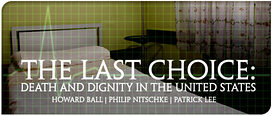Lead Essay
Howard Ball reviews the recent history of physician-assisted death (PAD) in America. He argues that it is a fairly direct outgrowth of other trends in our society, including the medicalization of death, the movement toward palliative end-of-life care, and the longstanding concern for individual autonomy that has characterized American legal and political thinking. Social values evolve, and he argues that allowing physicians to assist patients in dying will eventually come to be an accepted value as well, as a matter of compassion for those who are suffering.
Response Essays
Philip Nitschke looks back at the Baby Boom generation. All through their lives, they have broken the mold, in women’s rights, contraception, divorce, and many other areas. Now, as they approach retirement and the end of life, they are again breaking the mold. Death isn’t what it used to be, and a long, drawn-out, medicalized death may not be to everyone’s liking. Yet the law has often lagged behind, and one might even question, with Nitschke: Why do we need law, or physicians, in deliberately ending our own lives?
Patrick Lee urges us to observe the difference between committing suicide and foregoing burdensome treatment. Committing or assisting a suicide both disrespect the intrinsic good of human life and are objectively morally wrong. We rightly abhor pain and suffering, but this sentiment should not lead us to attack the person who is experiencing the pain and suffering. If we do, the lives of the elderly and disabled throughout our society will be devalued, with grave consequences for all.
Related at Cato
- Brief amicus curiae in Gonzales v. Oregon, July 18, 2005 (pdf)

